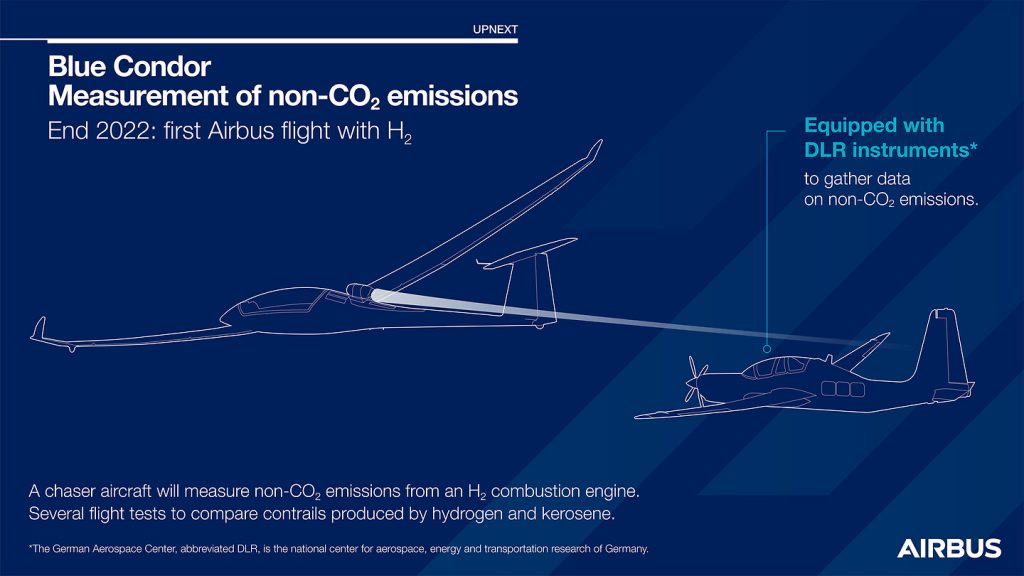Audio version of this article:
Airbus UpNext is to conduct a flight test program that studies contrails produced by a hydrogen combustion engine as part the company’s ZEROe roadmap.
The Blue Condor project will launch two modified Arcus gliders, one equipped with a hydrogen combustion engine, the other with a kerosene-powered combustion engine, to compare contrails emitted at high altitudes.
Test flights are scheduled for late 2022 in North Dakota, USA, in partnership with the University of North Dakota.
“Contrail characterisation is of significant interest to Airbus,” said Sandra Bour Schaeffer, CEO of Airbus UpNext, Airbus’ future technologies subsidiary. “We know that hydrogen emits no carbon dioxide when burned, but we also know that with water vapour and heat being the most significant by-products, hydrogen combustion does produce contrails. Although these contrails differ significantly to those produced by conventional JetA / A1 combustion engines, understanding their composition will be key to support our decarbonisation journey.”
Bour Schaeffer continued: “In taking up this challenge we are making significant headway in our decarbonisation strategy and our ambition to bring the world’s first zero-emission commercial aircraft into service by 2035.”

The Blue Condor demonstrator will be supported by the Perlan Project team, which will modify the Arcus gliders. They will also provide the high-altitude glider pilots that in 2018 set the world subsonic altitude record of 76,124ft in a pressurised glider for Airbus Perlan Mission II.
The German Research Centre DLR will collect and analyze data captured using its measurement instrumentation sensors on a chase aircraft, while Airbus will provide the hydrogen system and equipment, including the combustion engine and details of the flight test mission.
To ensure 100% comparable data between the hydrogen and conventional engine, the test flights will be carried out back-to-back under the same meteorological conditions.
Airbus is also conducting similar demonstration programs – including ECLIF3 (Emission and Climate Impact of Alternative Fuels) and VOLCAN (VOL avec Carburants Alternatifs Nouveaux) – to better understand contrails produced by sustainable aviation fuels.
Source: aerospacetestinginternational.com
